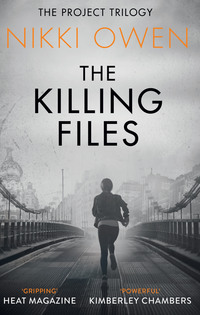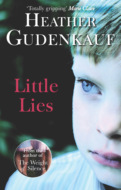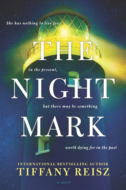Das Buch kann nicht als Datei heruntergeladen werden, kann aber in unserer App oder online auf der Website gelesen werden.
Buch lesen: "The Killing Files"
NIKKI OWEN is an award-winning writer and columnist. As part of her degree, she studied at the acclaimed University of Salamanca – the same city where her protagonist of Subject 375 and The Killing Files, Dr Maria Martinez, hails from. Born in Dublin, Nikki now lives in Gloucestershire with her family.

To Brian – this one’s for you, Mr Blue Sky.
Acknowledgements
Thanks to everyone in getting The Killing Files out into the world. Thanks to Sally, my Editor, to Cara, Alison and all the team at HQ Harper Collins. Also thanks to Adam, my agent (cheers, A!) and all the stellar PFD team. Big up to the supportive, beautiful book bloggers and Facebookers who make this such fun. And super shout out (once again) to Kelly Duke for reading this novel when, well, it wasn’t really one, and to my mum too, for giving it the thumbs up. Hugs to Marg and Brian for being the best friends and neighbours – Bri, you will always be in our hearts. And to Barry and Wendy for being the most amazing parents in law (and gardeners …) But, as ever, my biggest thanks has to go to my beautiful little family – Dave, Abi and Hattie, whom, without, I could never, ever write. DJ – you and me against the world, babe.
And, finally, to you now, holding this book – yep, you – thank you for reading The Killing Files! Without you, this book lark simply can’t exist. I am mighty, mighty grateful.
Table of Contents
Cover
About the Author
Title Page
Dedication
Acknowledgements
Chapter 1
Chapter 2
Chapter 3
Chapter 4
Chapter 5
Chapter 6
Chapter 7
Chapter 8
Chapter 9
Chapter 10
Chapter 11
Chapter 12
Chapter 13
Chapter 14
Chapter 15
Chapter 16
Chapter 17
Chapter 18
Chapter 19
Chapter 20
Chapter 21
Chapter 22
Chapter 23
Chapter 24
Chapter 25
Chapter 26
Chapter 27
Chapter 28
Chapter 29
Chapter 30
Chapter 31
Chapter 32
Chapter 33
Chapter 34
Chapter 35
Chapter 36
Chapter 37
Chapter 38
Chapter 39
Chapter 40
Chapter 41
Chapter 42
Chapter 43
Copyright
Chapter 1
Undisclosed confinement location—present day
The room is dark, damp. I cannot see properly. I have been caught, that much I know, but I am unsure by whom. The Project? MI5? Someone else? I don’t know how I got here. I don’t know how I am going to escape.
I lift my head but it feels heavy, a loaded sack filled with potatoes. I inch it back. My breathing is hot, the air a woollen blanket on my face, thick and scratchy, and, as my sight begins to adjust to the dark, slowly, like a curtain being lifted on a stage, I start to see small slivers of solid items. Where am I?
A room. I think that is what this is, but I am unsure. Then what? A cell? Prison confinement again? But I was found innocent. I am free, I tell myself. I am not guilty, have not killed anyone, yet even when I say the words to myself, for some reason, they don’t seem right, instead feel out of place, a code reassembled in the middle.
One breath, two. My eyes begin to adjust to the gloom and my sight registers small globules of shapes. The corner of a wall, the shard of a window—snapshots only of a whole picture. There is a seat of some sort, a table perhaps, but beyond that, nothing. The air is too black for me to take an inventory, the atmosphere sticky tar turning all the soft daylight into hot, putrid night as adrenaline starts to spurt out into my blood creating short, sharp alerts. I am not safe here.
It is then I hear it: the rustle of movement.
‘Who is there?’ My voice clicks with a cotton bud dryness, and I wonder how long it is since I last drank water as my brain rapidly attempts to calculate timings and bearings and any scrap of geolocation memory it can cling on to.
‘Who is there?’ I repeat, yet there is no answer, only darkness. A worry rises inside me, but I press it back, not wanting to panic, not wanting to melt down here and now.
Focus. Breathing. I can hear someone breathing, there, on the whisper of the air. I inch my eyes left, sensing what exists but almost not wanting to acknowledge it. Have I put them there, whoever it is? Is that what this is—a hit? Did I try to kill them? I didn’t murder the priest, but I doubted myself then, in court, at the trial. And then a horrific thought strikes. What if I have been on an operation for the Project and this is the result? A body on the floor beside me, injured by me and waiting to die. A killing I may later have no memory of.
My torso remains as rigid as possible, not daring to move. How did I get here? I think hard, connect my cognitive thoughts, but no matter how much I try, nothing shakes, as if my memory has been erased.
As if who I am doesn’t really exist.
The person’s breathing is shallow now, gravelled and raspy. I know what bleeding out sounds like—the sharp, slicing quality of oxygen intake—but this is not it. And yet, there is an urgency to the breath, a desperation that I cannot place, but it makes no sense why. I am a doctor so should know the signs, but still I cannot place them. What is wrong with me?
I blink three times and try hard to concentrate, to return my brain to function mode, focusing again on the room for clues. The edges. They are shrouded in black, but the window above affords a slip of light that plops in a puddle to my left.
It is then I see it—an arm—and a gasp slips from my mouth.
I track the limb, milky-white skin on a long, limp wrist, different to my own arms, my muscled, tanned ones, with bitten nails and dirt in the creases. Even in this murky room, I can tell that this arm is clean, scrubbed.
I keep all my attention on the body part and attempt again asking who they are, instinctively counting the time as I wait. The numbers sooth me as seconds rack up in twos, the action slowing, at least for the moment, the anxiety that is building inside, but when I ask again who is there and no one answers, a moan slips from my lips. The urine-coloured light has all but disappeared, yet somehow I start to see something slithering into view. A long, T-shirted torso. An elegant, white neck. A skull.
A face.
A scream pierces the air and I am shocked to realise it is mine. I catch my breath, frantically slap my hands up and down, straining to thrash my body forward from the seat, but still my pulse flies. Because there is a face, a face staring back at me, a face I know. Shaven hair, sharp cheekbones, gapped teeth and pool-blue eyes, eyes that even in this tar-black air, shine. My hearts races, my chest tightens. How can she be here? How have I let this happen? We are all in danger now, all of us.
‘Doc.’ The voice comes from the head on the floor.
I slam my eyes shut, not wanting to believe what is here, reciting an algorithm in a vain attempt to calm myself.
‘Doc, it’s okay.’ The voice is a cotton sheet flapping in the breeze, a rustle of green grass. ‘Doc, I’m okay.’
My eyes open. One millimetre then two, gradually allowing my sight to do the work my brain does not want to understand. My friend is here. My only friend in the world is lying crumpled on the floor beside me.
‘Patricia?’ I say, testing out the word. ‘You are out of Goldmouth prison.’
‘Yes, I got out on parole, remember? Two months after you.’
Confusion, worry. They spin round my head fast. ‘You are here. Why are you here?’
‘Because they have us,’ she says, the Irish lilt to her voice still there as I remember, but scratched now, torn. ‘The Project have caught up with us. You can’t hide from them any more.’
The Project have found me—that’s why I have woken up here in this room. They have entrapped us and there is only one way it will end: someone will die.
‘We have to get out. Tell me your status—are you injured?’
I listen for her reply, but there is only silence.
‘Patricia?’ Yet there is no answer, no words back to me as I continue to repeat her name over and over again in the gloom. When I finally stop calling for her, I flop back, flooded with fear, fear of myself, of who I am. Because it’s me—I have done this. I have caused this to happen. I slam my head back and back again, crying out, yelling into the thick, black air. Why can’t I recall how I got here? Why don’t I recognise where I am? Why?
Why?
One solitary, fat tear slides down my cheek. ‘Do not die.’ The words slip out, silent, unbidden. ‘Please, do not die.’
My eyes search for Patricia’s body, for an arm or a head, anything that can reassure me she is okay, that my friend is okay.
‘I am sorry,’ I say. ‘I am sorry. I am sorry. I am sorry.’
I stop, haul in oxygen, listen for signs of life, but in the ten long seconds that next pass, the only sound audible in the thick, foul air is the rasp of my own breath.
Salamancan Mountains, Spain.
34 hours and 59 minutes to confinement
The sun is blinding me. I kick off my running shoes, prop my hand on my forehead and, squinting towards the distance, listen to the morning as the mountains wake up. Clicking cicadas, dry summer grass rustling in the breeze, pregnant lemon and orange trees groaning under the weight of fat fruit spritzing citrus into the air, the distant bleat of a mountain goat—all the sounds that are now familiar to me, part of my daily routine. The security camera lights surrounding my hidden villa glow green, six lenses in total covering every angle of the property. The Salamancan earth is slowly rising.
I pick up my coffee cup, drain it then pad inside, counting my steps where the terracotta tiles are cold on my soles. One, two, three, my feet move forward until twenty-four arrives and I halt at the sink, my eyes watching everything. I set down my cup, pick up a white cloth and dry last night’s dishes: one plate, one knife and fork and one small wine glass. Opening a metal cupboard, I slot the crockery away, all of it easily fitting in, the only occupants in the large, spotless space.
I scan the rest of the kitchen, returning everything to its place. One pan, one white jug with a scratch seven millimetres long on the inside of the handle, one metal pot, small, for milk to warm at night when the sun rests and the night blanket covers the sky where the stars switch on and glow until morning. I count them all and document them in my head and, satisfied all is correct and present, I close all the cupboards and, stretching up my arms high into the air, recite the words I have spoken now every day since I came here to hide from the Project and MI5.
‘I am Dr Maria Martinez. I am thirty-three years old.’ My fingers ripple in the warm air, a gentle wisp of a breeze drifting in through the small open window, its wooden frame cracked yet solid. ‘I am innocent of murder. I am free.’
I stretch my hands further into the void, my muscles elongating into the empty space around me as I go through my routine to remind myself who I am, because if I did not tell myself, I fear I would be lost entirely. My hands fan out and my muscles are taut and strong, and, when I twist towards the glass door of the oven, my reflection stares back, green contact lenses patched over brown eyes, black hair dyed platinum and sawn in clumps to my small skull, the flesh on my face and limbs deep and sun-brown, lines thick and grooved and ingrained into my worn skin and elbows and ankles and knees.
‘I am Dr Maria Martinez. I am thirty-three years old,’ I repeat, inhaling, my back arching downwards and my arms reaching forwards so my palms flatten on the floor, the tiles cold on my skin, tiny sharp jolts reminding me I’m alive. ‘I am innocent of murder. I am free.’
The yellow morning rays shine warm on my face. I close my eyes and I breathe it all in, moving, exhaling, saluting the sun, feeling my body work as one with my mind as I repeat my chant over and over, losing my thoughts to the repetitive medicine of it, allowing my brain to soften itself of the millions of cognitive connections automatically made every second of the day and night. I bend my knees now, toughened skin touching down on the terracotta as I crease my spine upwards towards the ceiling, eyes still closed as I battle in my head with the pictures that sway before it, pictures of the loud, excrement-filled prison I was kept in, of the court trial and the beatings and the discovery of the Project entire, the shredded sordid secrecy. I breathe, try to let the thoughts pass by me as my spinal cord folds inwards now, rippling the muscles of my torso up and down, feeling them creak and stretch after the running outside, shorts riding up and itching my skin, vest top stuck to me with sweat, and even though the irritation of it is sharp, I continue focusing, letting my brain be even a little bit at ease with who I am, all the while chanting, reminding, never ever forgetting, because without conscious thought, what would we be?
Ten minutes pass in the early morning sun of my movements across the tiles and in the empty air, and, when I am ready and complete, I stand, exhale and open my eyes. The sun shines into them and I blink as my sight adjusts to the hazy film of the day that yawns out ahead of me, my mind registering with a glow of satisfaction that there are no people to attempt to converse with, no social games for me to decipher how to play. I turn to the sink. I extract one small glass from the cupboard to my left and, filling it with water, drain the contents, and mouth refreshed, rinse out the glass, and return it to its home.
When I am certain all is in its place, I wipe dry my palms on the back of my running shorts and pad towards the lounge, grateful for my daily routine, for each phase of it I have created. Every day since I left prison and came here to hide from the Project and MI5, after my morning run and yoga, I spend three hours tracking and documenting the latest news stories on the US National Security Agency prism scandal and any terrorist crimes or cyber security threats that I think the Project may be involved in.
I am just entering the lounge past the wooden crates on the floor when, today, it happens. I don’t know if it’s the thought of analysing the latest news on the NSA that has triggered it off or if it is because I slept badly last night, nightmares of prison waking me up in sweat-filled fits, but the memory arrives, fast and bright, not the hazy part of clouds that normally occurs when such recollections float to the surface, but this time quick, a taser prod, switching my mind from what is in front of me to what is inside, to a distant drug-hazed memory.
‘No!’ The sound of my solitary voice rings loud in the silence, sending the birds in the orange trees outside scattering in random directions.
I grip the kitchen sink. This process, this feeling, it is now familiar, so many times over the years has it passed, but still there is a fear as my brain is thrown into recalling something locked deep within my subconscious.
Something from my past.
Chapter 2
Salamancan Mountains, Spain.
34 hours and 56 minutes to confinement
Suddenly I am not standing in my Salamanca kitchen, but instead am in a white clinical room, a room that now, from my dreams, from my nightmares, I know well.
I am fifteen years old, limbs long and thin, jutting out at awkward Bambi angles. I am sitting robot-straight in a metal bed and my long matted rope of thick black hair is uncut and wild and resting on a white hospital gown where freckles puncture plump sun-kissed skin, cashmere soft, no lines yet of a longer life lived. ECG probes sit glued to my small rib cage and concave abdomen, and in the background the pit-put of a heart rate monitor hums.
I turn my head and see him. The man. I intake a sharp breath, but there is no surprise in it, no immediate concern, as if I have been expecting him, as if this, here, is a routine that offers me some strange, warped comfort.
‘Your vital signs are good,’ the man says. His voice has a Scottish lilt, each word a slice of a knife, a slow turn of a screw. ‘Can you tell me who I am?’
‘Dr Carr.’ My voice is a feather, a butterfly wing. I shiver.
He smiles and when he does, his lips slice thin and it makes me think of a cut on my arm. ‘And you have a special name for me, don’t you, Maria—what is it?’
‘Black Eyes.’
I can feel my nerves rise and so I scan the room as a distraction. The walls are white and by them stand three stainless steel seats and two cream Formica tables. There are no pictures or soft materials, just brown plastic blinds and two officers guarding the doors with handguns hanging by their sides. I don’t like it and so start to jig my leg.
‘Maria, look at me. Can you look at me?’
‘No.’ Jig, jig. ‘I want to go home.’
His smile slips and, without warning, his arm whips out and slaps my leg still. ‘Stop stimming and look at me.’
A sting like one hundred needle points pricks my skin. My leg drops still. I want to scream at him, jolted by the feel of his touch, but am too scared because I know he could shout and the noise would bother me too much, and so instead I attempt to do as he says so he won’t touch me again.
He rolls his fingers into his palm and withdraws his hand to his lap. ‘I’m sorry for that,’ he says. ‘We are on a tight deadline today.’
I strain my eyelids, force my sight to stare straight at him, but it is hard, hurts, almost in an uncomfortable way, as if opening my eyes to his, to anyone’s, would allow them to see into me, see into my thoughts. In the end, I only manage to make contact for two seconds then have to look away, exhausted.
He inhales. ‘For the next few hours, I want you to practise making eye contact for half a conversation. This will help you slip more seamlessly into a regular situation if you ever go operational. Make you appear more … normal. Yes?’ He smiles and I think I see tiny eye creases crinkle out on the corners of his face, but I am unsure. ‘Yes, Maria?’
‘Yes,’ I respond on autopilot.
‘Good. Look at me.’ I do. ‘One second longer, that’s it. Two, three, four … Good. You can lower your eyes now.’
I drop my gaze, shattered, as he takes notes in green ink on a yellow page. Behind him, a woman walks over, petite, a tattoo of a cross on her brown neck, hair so closely cropped to her scalp, it appears to shine. The woman stops and whispers in Black Eyes’ ear. I cannot hear them so I bend forward a little, yet, when I look down at my thin, gowned body, the probes sticking out, it is merely crumpled, having barely moved at all. Beside me the heart rate monitor beeps faster.
My body shifts on the bed. Black Eyes is nodding now to the woman who has appeared in the room and at first, the words they whisper fade into the squashed air, but after two then three seconds, their sentences filter through as, slowly, my ears switch fully on.
‘The programme is showing her skills are improving, Dr Carr,’ the woman whispers. ‘Her handler at the church is communicating very positive results.’
‘Such as?’
‘He gave her a complex code to crack and she did it within thirteen seconds.’
‘Good. Good. What else?’
She consults her notes. ‘The subject’s IQ is exceptionally high, photographic memory sharp—she is obsessed with classical composers, tracks all their family details, their names, all their pieces—’
‘Has she learnt to play the piano yet?’
‘Yes. Self-taught, Trinity College London, Grade Eight standard within three weeks. Further information: the way in which she can sense acute sounds and scents is exceptional—I know you were concerned about that.’
‘Hmmm.’
‘And her dexterous skills, her technical assimilation—it’s getting faster. She can take apart and reassemble a radio clock, for example, within three minutes now, last time it was five. Her handler at the school recorded that.’
There is a nod from Black Eyes as he turns and provides me with a narrow stare. ‘We have been operating for twenty years now and this is our breakthrough. She’s the only one the conditioning appears to be working on.’
‘Yes.’
He looks to her. ‘MI5 will want to hear about this.’
The woman hands him a slip of white paper. ‘Done. Here are the results we sent over to our contact there.’
Black Eyes scans the data, his fingers pinching the page, each a spindled vine of pale flesh. ‘All these people we have conditioned and tested, and none of them are quite like this test child, this Maria Martinez. What is her confirmed subject number?’
‘375.’
‘Subject 375. Yes.’ He taps the paper. ‘We have some scenarios I would like to use her for, see what she can do. MI5 are pressing us to assist them with unusual security threats—cyber elements, computers etcetera. Let’s see how she can help us.’
His head dips and, without warning, his skeletal fingers creep forward so that they skim my calf. I instantly flinch, but he doesn’t appear to notice, instead seems in some kind of trance. ‘It’s okay,’ he says to me. ‘It’s okay.’ Then he turns to the woman. ‘She is strong, but not yet old enough to fight, but soon …’ He lifts his hand, knuckles and flesh hovering in the air, and the thought occurs to me that he may hit me. ‘While she is here, we will ask her what she knows.’
The woman frowns. ‘But won’t that stay in her memory, the covert details are just that—covert. What if she recites them when she is back in her normal environment?’
He shakes his head. ‘We will give her Versed as we always have, administered before she is dispatched home to Spain. It has worked well so far.’ He looks to me. ‘It will wipe her immediate mind so no secrets are divulged—she will simply believe she has visited the specialist clinic with her mother because of her Asperger’s.’ He hands the woman the paper. ‘The Versed drug means she will be unable to recall fully what she has or has not done, but enough remains in the subconscious for her to be useful until she reaches an age where she can be fully operational. It is important that you learn this.’ He folds his arms. ‘The subject may recall things, facts, but they will be hazy—like dreams. But we need that. We need this data, this training we give her, to remain stored in her brain somewhere so we can use it when the time is right.’
‘Maria?’ He is talking straight to me now. A rush of heat prickles my entire body and I don’t know what to do. My eyes search for a way out but there are no exits, here, anywhere. ‘Maria,’ he says, voice unusually soft, low, ‘where are we?’
But nerves rack me, and instead of speaking, I press my back into the bed, the cold cotton of the gown skimming my knees, goosebumps popping out.
‘I want to go home.’
‘You will. But first—that’s it, look at me, good—answer me: where are we?’
I look between the woman and Black Eyes. When I open my mouth, my voice trembles. ‘I am in a Project facility.’
‘And who are the Project?’
‘It is a covert group linked to MI5.’
‘And what do we do?’
Despite myself, despite my resistance, the words trip from my mouth, as if they are preset, robotic. ‘The Project is a covert programme formed in response to a global threat of terrorism and, specifically, cyber terrorism. It trains people with Asperger’s to use their unique, high IQ skills to combat security alerts. Only MI5 knows the organisation exists.’
‘And the UK government?’ he asks. ‘What of them—do they know who we are?’
‘Negative. They have no knowledge of the Project’s existence.’
‘Good.’ His chest puffs then deflates as his head bobs up and down, a smile snaking in to his face. ‘Good.’
The woman nods once to Black Eyes then leaves via a door that has no handles or hinges. Black Eyes waits for her to exit then turns to me, perching himself on the end of the bed. I grip the sheets tight. At first he does not speak, but then, after two seconds, he opens his mouth and a precise, metallic voice strides out.
‘You will not remember being here, Maria. You won’t recall this conversation, you won’t recollect the details of the tests we carry out on you. But know that we are always watching you, are always … here for you. We are everywhere.’ He leans to the side and, from a metal trolley, picks up a loaded syringe. My heart rate rockets.
‘You are at school now, yes?’
I swallow, confused. ‘No. I am not at school now. Now I am here.’
He pauses, one second, two, three, his teeth appearing to clench. ‘Your teacher next year,’ he says finally, exhaling, ‘he will be working for us, helping us to watch you. These people you see nearly every day—they are your handlers. Even your family priest. But of course, you won’t—’ a strange mewed laugh emits from his mouth—‘you won’t remember.’ He sighs. ‘I cannot believe I am telling you this now—you’ll only forget. But Father Reznick, your friendly Catholic priest—he’s one of us.’ My eyes go wide. The priest? But I saw him kissing Mama. ‘Oh, the big brown eyes! Maria, I am growing to know you well now. You do remind me of my own daughter …’ He drifts off, momentarily looking downwards, the needle resting in his fingers, and I glance to the door and wish I could run. ‘Anyway,’ he says after a moment, ‘do not worry. When you go on to university and work, we will have our people there, too, Project people like me and you, people who will watch over what you do, even though you won’t, at the time, know they are with us.’ He flicks the needle with a finger. Sweat beads pop out all over my face. ‘Oh, there’s no need to fret,’ he says now, leaning in, studying the sheen on my forehead. ‘We are friends, aren’t we?’
I recoil. ‘I do not have any friends.’
He halts, tilting his skull. ‘No. No I don’t suppose you do.’ He drifts off again for a second, then, checking the needle, he handcuffs my wrist with his fingers and pulls my arm towards him. ‘Your mother, Ines—lovely woman, isn’t she?’
I say nothing, instead watch his eyes narrow as they inspect the vial for air bubbles. Vomit wells in the base of my throat.
‘Shame she is on her own now after your father, Alarico, died. Loneliness is a terrible thing. Car crash, wasn’t it?’
Alarico, my papa. Hearing his name makes my head spin a little, my heart ache. The vomit rumbles.
‘Still,’ Black Eyes says now, his Scottish lilt dancing on the cold air, ‘she’s a strong woman, your mother, a lawyer like your father, but, well, more forthright. She’ll make a good politician when she hits the Spanish parliament after she’s got over her little … illness. Your brother, too—Ramon, isn’t it? Seems like he’s following in their legal footsteps what with his fondness for debate club. Quite the family. And family, Maria, it’s important, keeps us together …’
Black Eyes is leaning in to me so close now, I can see the faint shadow of stubble on his chin, feel the hot garlic and tobacco of his breath on my neck. I want to scream. I want to run a million miles away, but no matter how hard I try, I cannot bring myself to move, and even if I did run, where would I go? Where would I ever go?
‘You though, Maria—my … our test child,’ Black Eyes says now, ‘for you we have plans. We would like you to become … a doctor. Try and press that into your subconscious, hmmm? Even though this will make all of today fade away. A plastic surgeon, specifically. We need to test your dexterous skills, hone them so they can one day be of use to us. Study in Madrid at the University Hospital there—that’s where one of our handlers resides.’ He smiles, a flash of crooked, tombstone teeth. ‘Do you understand?’
I nod.
‘With words.’
‘I understand.’
‘Good. Because you are the one our conditioning is working on and we wouldn’t want all these trips your mother takes you on to be wasted now, would we?’
‘Mama believes she is taking me to an autism clinic,’ I say, an unexpected flash of defiance streaking through me. ‘She does not know what you really do. You are lying to her.’
He stares at me. He levels his black, bottomless eyes at me and delivers a look so chilling that, even with my emotionally challenged brain, I get a shiver of fright.
‘We have a bit of terrorism to fight out there,’ he continues now as if I had never spoken. ‘Pesky little terrorists trying to break into our computer networks, into our global infrastructures. But now—’ Black Eyes taps my arm, lowers the needle to my skin ‘—now, my dear, sweet Maria—now you will forget …’








